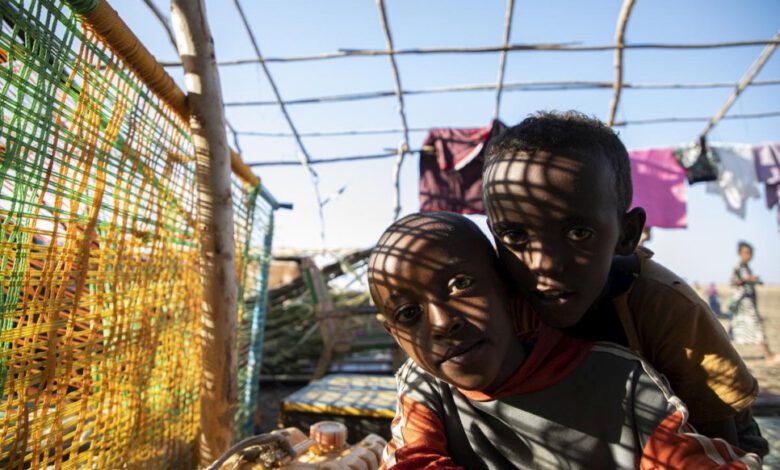
This appeal will also strengthen preparedness to receive refugees in other countries in the region in case of further refugee movements. Over the past six weeks, more than 52,000 refugees have fled the Tigray region into eastern Sudan. Despite the number of new arrivals dropping more recently to some 500 a day, aid agencies are dealing with a full-scale humanitarian emergency in a very remote area that has not seen such a large refugee influx in decades.
The Regional Refugee Preparedness and Response Plan for the Ethiopia Situation (Tigray) covers the period from November 2020 through to June 2021, and will reach up to 115,000 refugees and 22,000 people from host communities. It aims to support the governments of Sudan, Djibouti and Eritrea in maintaining and facilitating access to asylum and providing life-saving assistance to those who have been forced to flee.
Funding will allow the implementation of critical activities, including registration and documentation, ensuring the civilian character of asylum, decongestion of sites in border areas and transferring refugees to new settlements. Other priorities include providing food, health and education services, and support to groups with specific needs, such as women and girls at risk, unaccompanied minors, the disabled and the elderly. The appeal also covers shelter and basic household items for refugees, and support for livelihood activities for refugees and the host community.
In eastern Sudan, from 14 November to date, more than 20,000 refugees have been relocated from the border areas to Um Rakuba camp, located some 75 kilometresfrom Gedaref town. As this site approaches capacity, UNHCR and partners will next week begin preparatory works on a new site located further inland, 136 kilometresaway from Gedaref town.
Currently many refugees remain in overcrowded conditions without proper facilities and there continues to be a shortage of medicines and other supplies. We have seen a huge demand for family tracing and reunification, education and child friendly spaces, and nutritional programmes.
So far only 30 per cent (US$46 million) of the required funds have been received by UNHCR and partners for the ongoing response. Responding agencies are grateful for contributions from both government and private sector supporters, that together with unearmarked contributions have allowed for a rapid response to initial needs. Partners are calling for urgent new contributions in order to meet the immense humanitarian needs in eastern Sudan and to ensure full preparedness throughout the region.
Source: UNHCR







